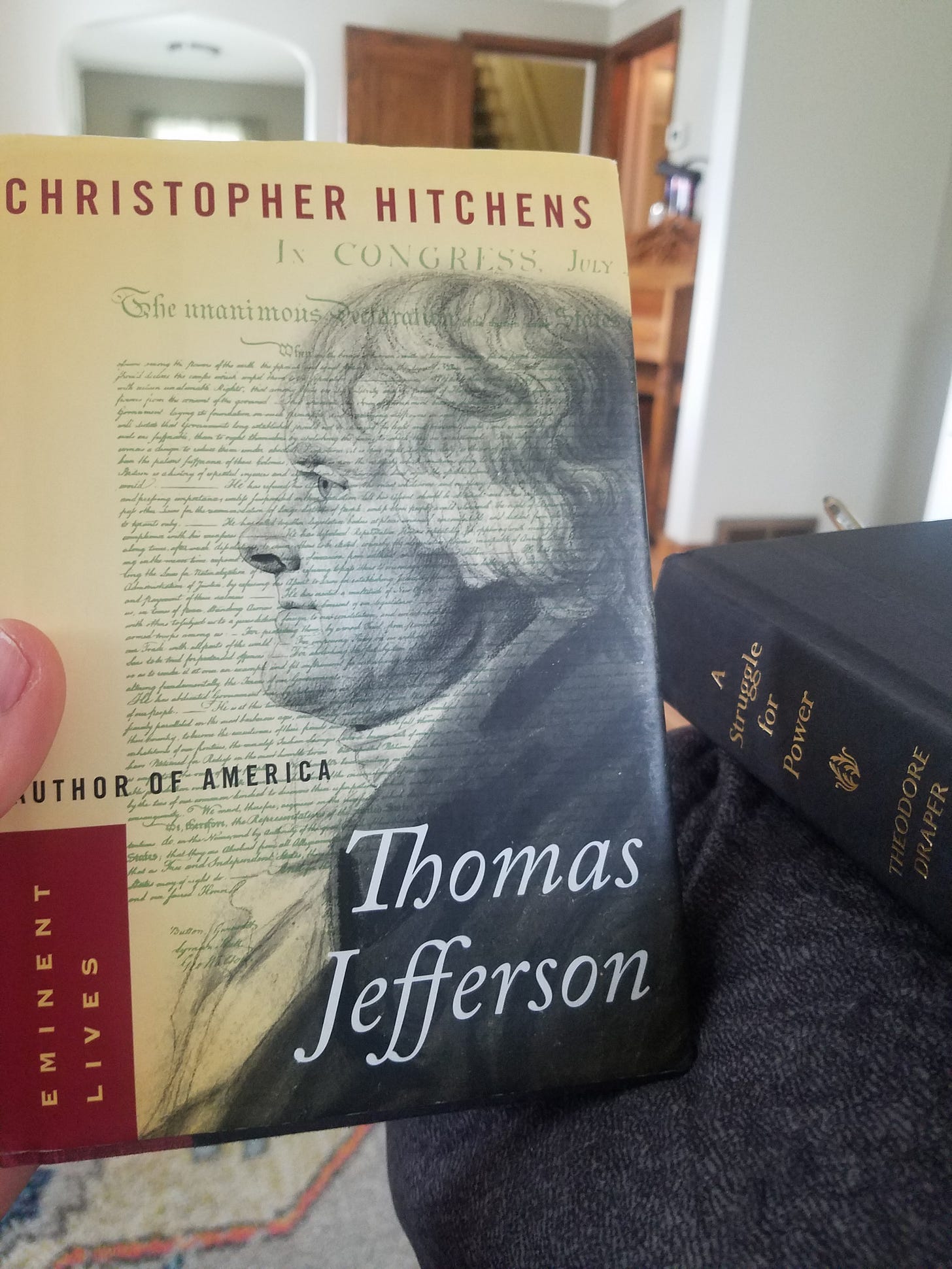
On my American History list was Christopher Hitchens's Thomas Jefferson: Author of America.
Often at the helm of America's designs or influencing its trajectory was Thomas Jefferson. And though the word ‘experiment’ describing the American Revolution used in Jefferson's last public letter is tarnished by grand experiments gone horribly wrong that have followed, it is still worth noting the following:
The term “experiment,” in Jefferson's mouth or from his pen, meant the scientific curiosity of his colleagues in the American Philosophical Society: the humane genius of a Rittenhouse or a Rush or a Barton or a Priestley. The undertaking to be tested was that of self-government. The French Revolution destroyed itself in Jefferson's own lifetime. More modern revolutions have destroyed themselves and others. If the American Revolution, with its secularism, its separation of powers, its Bill of Rights, and its gradual enfranchisement of those excluded or worse at its founding, has often betrayed itself at home and abroad, it nevertheless remains the only revolution that still retains any power to inspire.
Speaking of power, next up is A Struggle for Power by Theodore Draper, complimented by Hitchens in the introduction to his summary of Jefferson's contributions and contraversial yet undeniable legacy.
Thomas Jefferson had, in the course of a long political life, contained sufficient “multitudes,” in Walt Whitman's phrase, to contradict himself with scope and with generosity. He ranged himself on many sides of many questions, from government interference with the press to congressional authority over expenditures, and from the maintenance of a permanent armed forces to the persistence in foreign entanglements. In a large number of these cases, his justification for reversal or inconsistency was the higher cause of the growth and strength of the American Republic. In a smaller number, it is not difficult to read the promptings of personal self-interest. At the end, his capitulation to a slave power that he half-abominated was both self-interested and a menace to the survival of the republic. This surrender, by a man of the Enlightenment and a man of a truly revolutionary and democratic temperament, is another reminder that history is a tragedy and not a morality tale.
Recommended.
Wishing you a good day,
Erik



